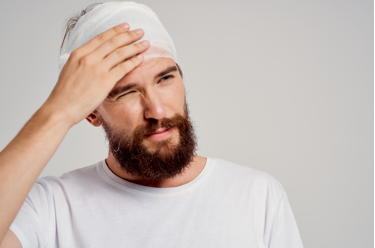Mental Health
What Are the Signs That HGH Deficiency Is Cured?

(Photo : pixabay)
Human Growth Hormone (HGH), also known as Growth Hormone, is produced by Pituitary Gland located in the brain, which helps stimulate growth. It is released into the blood and controls how the body forms healthy muscle, body fluids, and body composition. It also helps in brain and heart functioning. It is needed in fat and sugar metabolism. HGH Deficiency is a medical condition that occurs when there is insufficient production of the HGH hormone. Adults can experience this deficiency. Causes of this deficiency could be a damaged pituitary gland or a tumor in the brain. It could also be because the pituitary gland is affected by removing a brain tumor through radiation therapy methods. Other causes could be a head injury, brain infection such as meningitis or stroke, and bleeding on the brain's base.
Who Should Consider HGH Therapy and Why?
Adults who have a deficiency in HGH should seek therapy to help in treating it. An adult with this deficiency has the following signs in the body:
-
Increase in central weight, especially around the abdominal area.
-
Difficulty to lose weight.
-
Developing anxiety and depression
-
Avoiding socialization with friends
-
Reduce energy levels due to a decrease in muscle mass
-
Fatigue
-
Dry skin.
-
Heart weakness
-
Reduced sexual interest and function
The Tests Made To Detect Hdh Deficiency Are
:
-
A physical exam is done by a physician to look for all the signs mentioned above
-
A blood test is done to check if HGH-Deficiency is caused by damage in the pituitary gland
-
Growth-hormone stimulation test
-
Insulin tolerance test
-
An MRI of the brain so the doctor can look at the pituitary gland
-
Hand x-rays to show the doctor your bone density
-
Head x-rays for any problems with the bone structure of the skull
-
A dual-energy x-ray absorptiometry scan to measure the bone density
It is important to get growth hormone therapy if one has been diagnosed with Human Growth Hormone Deficiency since it is the most common treatment. It involves the injection of the growth-hormone into the body. The needles used are the same one used to inject insulin by diabetes patients. After a doctor has prescribed Growth-Hormone therapy, the patient will need daily doses of the growth-hormones. The patient or a family member can inject it. However, one might need more amounts of growth hormones, depending on their case.
Growth-hormone therapy is generally safe and only has rare side effects. These side effects will indicate that one is getting more growth-hormones than they need. These side effects are:
-
Pain in the joints
-
Muscle aches
-
There might be swelling and numbness in your ankles
-
Rise in blood pressure and blood glucose
Once you notice these side effects, inform your doctor, who will then adjust your dosage level. The side effects will decrease as you respond to the treatment well. It is recommended to be on growth hormone therapy for a period of twelve to eighteen months. See your doctor every four to eight weeks so that your treatment will be monitored. And the doctor should adjust your dosage as you go through the treatment, depending on how your body responds. Regular exercise and a properly balanced diet, and getting a good amount of sleep will help in the treatment process.
While administering the treatment, doctors consider the patient's age, the patient's expectations, their tolerance to the treatment, and the severity of the patient's condition.
What Are the Normal HGH Levels in Adults?
The normal range for growth-hormone levels are usually:
-
Adult males -- 0.4 to 10 nanograms per milliliter (ng/mL), or 18 to 44 picomoles per liter (pmol/L)
-
Adult females: 1 to 14 ng/mL, or 44 to 616 pmol/L
Human growth hormone levels reduce as one age. The range is much higher in children since they need them to grow, but adults have a much lower level, but it is still important for adults to have the growth-hormones for normal body function.
What to Expect After the Therapy?
The reported hgh results show us that it is possible to achieve such goals of growth hormone therapy as:
-
Restore energy to your body
-
Get better metabolism
-
Get enhance body shape and development
-
Improve strength pf your body
-
Reduce the risk of heart disease
Growth hormone therapy will decrease body fat, with the greatest reduction taking place around the abdomen. There will be an improvement in muscle mass. After the therapy, the risk of diseases such as diabetes will reduce since this deficiency affects blood glucose levels, affecting the insulin. You will also notice better exercise performance. And some patients might experience better psychological well-being and better moods. You will start to see these signs that will indicate your HGH deficiency is cured.
It is important to note that growth-hormone therapy should not be administered orally. Also, HGH-therapy cannot be done on all people. Patients with diseases such as cancer and diabetes, severe injury, or any other serious illnesses should not receive the growth hormone therapy treatment. Growth hormone deficiency can affect how your body works; it is important to seek treatment for your body to be healthy and function well.
* This is a contributed article and this content does not necessarily represent the views of counselheal.com









Join the Conversation